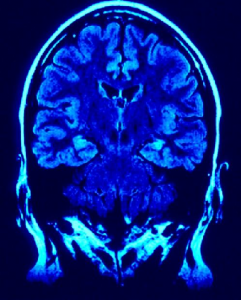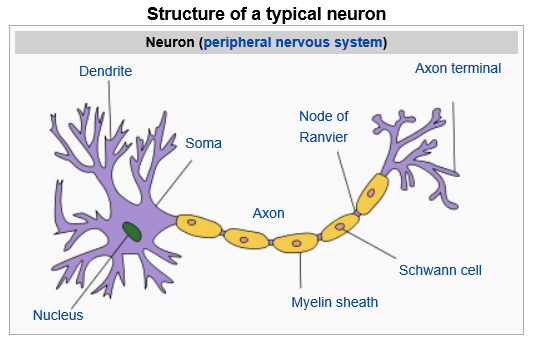 Lately, if you have noticed there is lots of media attention on brain health. Eat this food, play this game, exercise, etc. all with the benefit of improving the brain and decreasing the likelihood of dementia or Alzheimer’s Disease in the future. All of this sounds great, but have you ever wondered how the brain works? After all if we are doing all of this work wouldn’t it be helpful to know exactly what is going on. Read on and discover the connections and relationships between our efforts to how the brain works.
Lately, if you have noticed there is lots of media attention on brain health. Eat this food, play this game, exercise, etc. all with the benefit of improving the brain and decreasing the likelihood of dementia or Alzheimer’s Disease in the future. All of this sounds great, but have you ever wondered how the brain works? After all if we are doing all of this work wouldn’t it be helpful to know exactly what is going on. Read on and discover the connections and relationships between our efforts to how the brain works.
Discover How the Brain Works
The brain is the central command station of our very being. It is also the vital organ that determines death. The brain is comprised of millions of neurons that are constantly firing sending and receiving messages. Every thought, action, and behavior you have will trigger a response through your brain.
Your brain, spinal cord and peripheral nerves make up a complex, integrated information-processing and control system known as your central nervous system. In tandem, they regulate all the conscious and unconscious facets of your life. via HowStuffWorks “How Your Brain Works”
So what is happening? How does the brain work? Well the brain is made up of all of these nerve cells, known as neurons. These are divided into three parts: the dendrites (which receive information), the cell body (which then continues to pass on the information), and the axon (which then sends the information on to other neurons).
There are many different types of neurons which do different things. For example, some look after breathing, others chewing food, walking, learning a language, or playing a computer game. These are just a few examples. Everything that you do stems from your brain cells or neurons forming connections with each other. via: How the Brain Works

Each axon is coated with a myelin covering which acts both as insulation from other cells and as a sort of grease that speeds the transmission of the electrical impulses. There are tiny gaps between the neurons which are called synapses. Neurons do not have direct contact. A neuron gathers signals from other neurons through the dendrites and sends a signal out along the axon. In addition, chemicals in the brain either stimulate or inhibit the nearby neurons. via How the Brain Works | Sound Bytes Reading
Watch this video to learn how the brain works.
Stress and Your Brain
We’ve known for some time that stress can cause havoc on all parts of the body. It is considered a precursor to disease and therefore health professionals are always talking about the need to find ways to de-stress. Certainly easier said than done in today’s busy world. But how does stress impact our brain?
Stress can actually change the size of the brain making it smaller. In fact, it is one of the most common causes of changes in brain function. According to one study, baby monkeys were used to test the effects of stress on development and long-term mental health. Half the monkeys were cared for by their peers for 6 months while the other half remained with their mothers. Afterwards, the monkeys were returned to typical social groups for several months before the researchers scanned their brains. For the monkeys who had been removed from their mothers and cared for by their peers, areas of their brains related to stress were still enlarged, even after being in normal social conditions for several months. via Surprising Ways Your Brain Works | KidzMatter
More on How the Brain Works
“Whether you think you can or you think you can’t you are right” a famous quote by Henry Ford really sums up the capacity of your brain (via: How the Brain Works). We all have the power of greatness, but for many reasons only a small percentage choose to completely harness their brains potential.
Possibly we do this because of false beliefs that we might have taken on during our formative years or maybe we do not invest enough time for the learning process to occur. Remember, learning is not instantaneous but rather repetitive actions in order for neurons to make connections that are then easily retrieved once the process is complete.
The truth however is that each one of us has the potential to do anything that we want. The bigger question then becomes whether or not we want it. Are we willing to put in the investment of time and energy for the desired outcome. If there is something that you truly want in your life all you have to do is ask yourself how badly you want it. The answer will reveal your commitment and dedication towards your desires and quests. So ask yourself…
Learn even more about how the brain works with this second video.
Image Courtesy of Wikipedia http://en.wikipedia.org/wiki/Neuron

Subscribe To Our Newsletter
Join our mailing list to receive the latest news and updates from our team.





